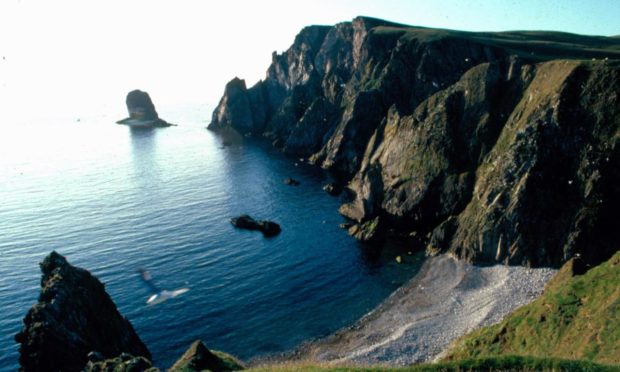The National Trust for Scotland has called for the country’s marine protected area network to be extended to help preserve sea life.
The charity has written a manifesto ahead of the May 6 election that outlines a vision to strengthen management, protection and enforcement measures within the network.
There are currently 239 MPA sites, including a demonstration and research site on the Fair Isle, that make up 37% of Scotland’s seas. MPAs are designated to protect and preserve marine wildlife, habitats, geology and cultural heritage.
However Diarmid Hearns, head of public policy at NTS, said MPA status does not automatically deliver protection to those areas and there are several issues the government has to address.
He added: “Designation in name alone is not good enough – for our MPA network to be effective, we now need to put in place appropriate management regimes for each MPA and – most critically – monitor and enforce compliance.
“A recent MSC report found that bottom trawling is only banned in 5% of the UK’s offshore MPA and the Scottish Government’s Scotland’s Marine Assessment 2020 reported that only 9 MPAs have achieved their conservation goals.”
Extending marine protection
The protection of Priority Marine Features (PMFs), which include grey seals and minke whales, is one topic of concern that NTS raise in the manifesto. The charity proposes a complete review of PMFs which fall outside the existing protection area.
Mr Hearns said: “Our PMFs are meant to be protected by MPAs but many sit outside the network. Moreover, many are within a nautical mile of the shore and easily damaged by bottom trawled fishing.”
NTS believes the MPA network should remain under constant review and continue to be built upon.
Scottish ministers were given powers to designate MPAs in Scottish territorial and offshore waters under the Marine (Scotland) Act 2010 and the Marine and Coastal Access Act 2009.
In 2017 ministers issued an order to designate an emergency MPA in Loch Carron following dredging damage caused to the world’s largest expanse of flame shell beds.
A further 16 sites, including four inshore MPAs and 12 Special Protection Areas (SPAs), were added to the network in December 2020.
Benefits and consequences for tourism and fishing
Improving management and extending the network of MPAs will benefit a sustainable fishing industry and the tourism sector according to the manifesto.
Mr Hearns added: “We believe it is possible to have a well-managed marine environment and a sustainable fisheries sector – as well as use the sea sustainably for other social and economic uses such as tourism.
“The MPAS network needs to be the foundation for this, creating a
network where marine life can regenerate, ultimately benefitting all of Scotland’s seas.
“Scotland has one of the most extensive coastlines in Europe, with a myriad of islands, and communities with an age-old relationship with the sea. As we aspire to meet the twin challenges of climate change and biodiversity loss, better management of our marine environment is as important as meeting these challenges on land.”
NTS is calling on all parties to commit to signing the manifesto.
